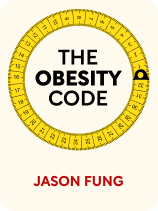

This article is an excerpt from the Shortform book guide to "The Obesity Code" by Jason Fung. Shortform has the world's best summaries and analyses of books you should be reading.
Like this article? Sign up for a free trial here .
How does meal timing affect your insulin? What happens in your body when you eat too frequently?
When you eat every few hours (including snacking), your insulin remains elevated. When insulin levels are both high and constant, your body’s cells become insulin resistant. That kicks off the self-perpetuating loop of chronically high insulin that promotes weight gain.
Here’s how meal timing affects your insulin.
Meal Timing and Insulin
A major factor that contributes to chronically high insulin levels is meal timing. Constant insulin release occurs when we eat too frequently. Insulin levels increase in response to food, and they decrease between periods of eating. If you leave little or no time between periods of eating, you never allow your insulin to return to normal levels. The more frequently you eat, the faster you’ll create insulin resistance in your body.
(Shortform note: Additional risk factors for insulin resistance include smoking and drinking alcohol in excess. Chronic cigarette smokers appear to have a higher insulin response and take longer to clear insulin away, while a rat-based study found that binge drinking as often as one time monthly decreased insulin sensitivity. This effect persisted for 54 hours, and the researchers speculate that this is due to impaired function of the hypothalamus, which communicates with insulin to coordinate insulin sensitivity and set weight.)
In addition, eating constantly keeps your glucose and glycogen stores full, preventing you from burning your fat stores as fuel. Fung explains that neither snacking nor breakfast are strictly necessary.
Snacking: According to Fung, snacks have little or no nutritional value and no place in a healthy diet. Snacks are often made of refined carbohydrates, such as wheat and sugar, so they spike your insulin levels and contribute to obesity. Fung suggests that “Big Food” companies created snacks to generate more profit, and that they’ve disrupted the traditional “three square meals” eating pattern that allowed insulin to drop between meals.
(Shortform note: The Hartman Group, an organization that tracks trends in consumption of foods and beverages, reports that snack culture is shifting toward healthier, “fresher” snacks. Legacy companies still hold a large share of the market, but consumers increasingly want healthier options and more diverse flavors. This isn’t just packaged snacks—restaurants and other grab-and-go style establishments now offer quick, casual “snacks”—think smoothies, acai bowls, burritos to go—that occupy a “gray area” between legacy snacks and sit-down meals.)
Breakfast: Much like snacks, Fung contends that breakfast foods are unhealthy and contribute to obesity. Like snacks, many breakfast foods are made of cheap, processed carbs, and “Big Food” pushes the notion that “breakfast is the most important meal of the day” in order to profit from unaware consumers. Research shows that breakfast is inessential to good health, and Fung recommends skipping it or replacing carb- and sugar-heavy breakfast foods with whole, unprocessed foods such as salmon or a salad.
(Shortform note: In addition to marketing breakfast as essential, which Fung notes, the creators of breakfast cereals used religious moralizing to push their wheat-based cereals. James Caleb Jackson, who invented the first breakfast cereal, and John Harvey Kellogg, originator of Kellogg’s breakfast cereals, were Seventh-Day Adventist preachers who believed that a strict vegetarian diet and whole wheat cereals could counter ill health. Further, cereal became known as a reliable kickstart to the workday, such that people associated breakfast with increased productivity, another nearly moral imperative to American society.)

———End of Preview———
Like what you just read? Read the rest of the world's best book summary and analysis of Jason Fung's "The Obesity Code" at Shortform .
Here's what you'll find in our full The Obesity Code summary :
- Why everything we were taught about obesity is wrong
- The theory of obesity as a hormonal disorder that causes overeating
- Why dieting doesn’t work and exercise actually has little impact on weight loss






